|

|
The Enthusiastic Employee:
Only under duress will employees pay attention to feedback from managers who know little or nothing about the workers’ jobs.
|
329 |
|

|
The Enthusiastic Employee:
…receiving recognition for one’s achievements is among the most fundamental of human needs…
|
331 |
|

|
The Enthusiastic Employee:
Psychologically healthy people want to be recognized for their genuine achievements and are concerned primarily with the opinions of those whom they admire…
|
332 |
|
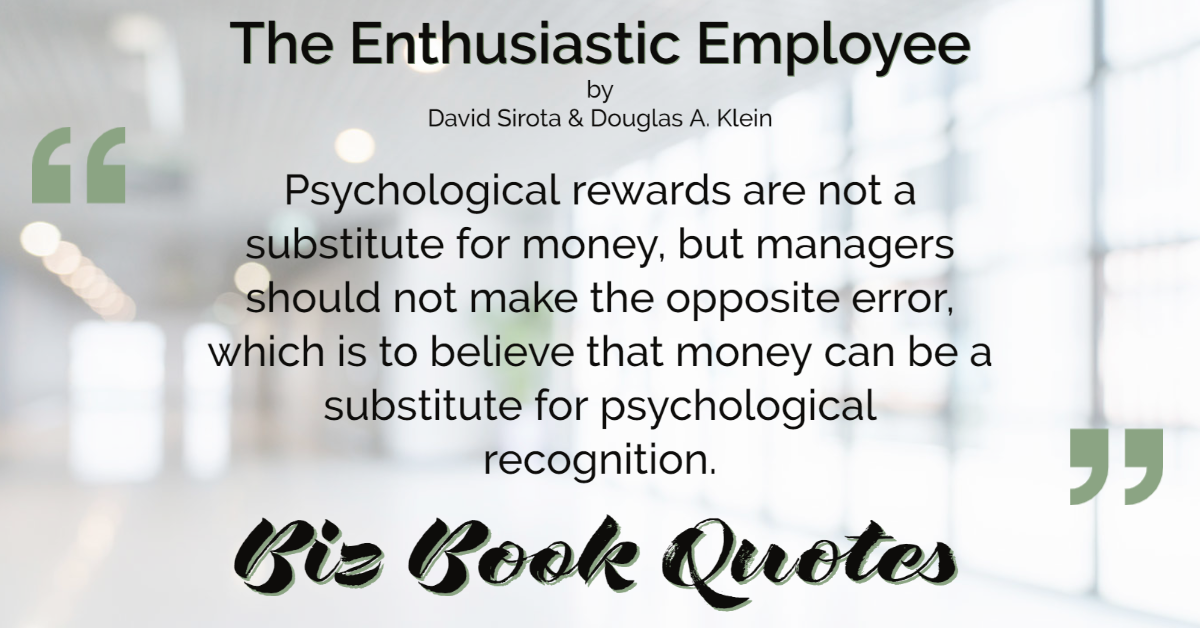
|
The Enthusiastic Employee:
Psychological rewards are not a substitute for money, but managers should not make the opposite error, which is believe that money can be a substitute for psychological recognition.
|
335 |
|
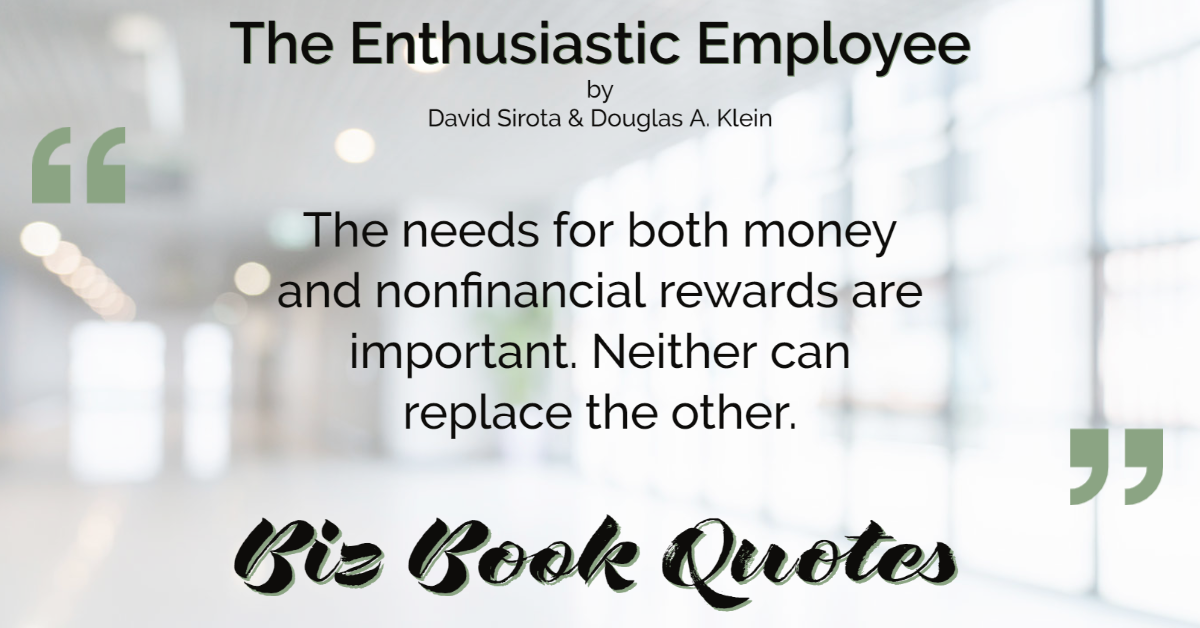
|
The Enthusiastic Employee:
The needs for both money and nonfinancial rewards are important. Neither can replace the other.
|
335 |
|
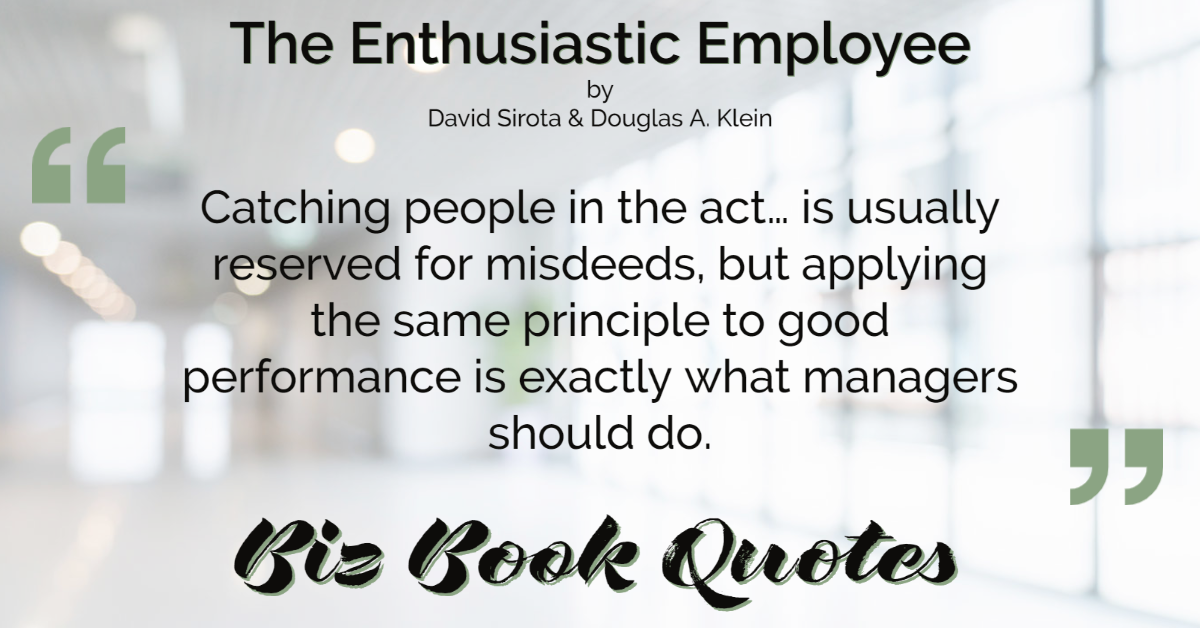
|
The Enthusiastic Employee:
Catching people in the act… is usually reserved for misdeeds, but applying the same principle to good performance is exactly what managers should do.
|
337 |
|

|
The Enthusiastic Employee:
…recognition is vitally important to employees and that employees listen carefully to every word that is said when it is given.
|
338 |
|

|
The Enthusiastic Employee:
…people want honest and deserved acknowledgement of their contributions and, when received, it is greatly appreciated. Don’t spoil it.
|
339 |
|
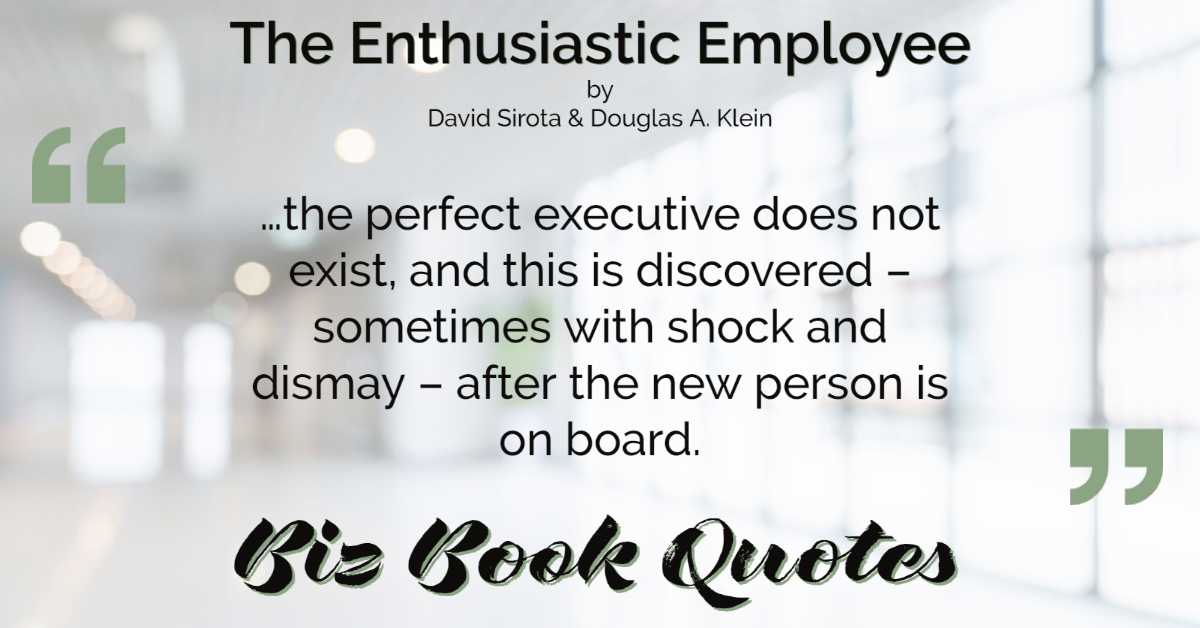
|
The Enthusiastic Employee:
…the perfect executive does not exist, and this is discovered – sometimes with shock and dismay – after the new person is on board.
|
342 |
|
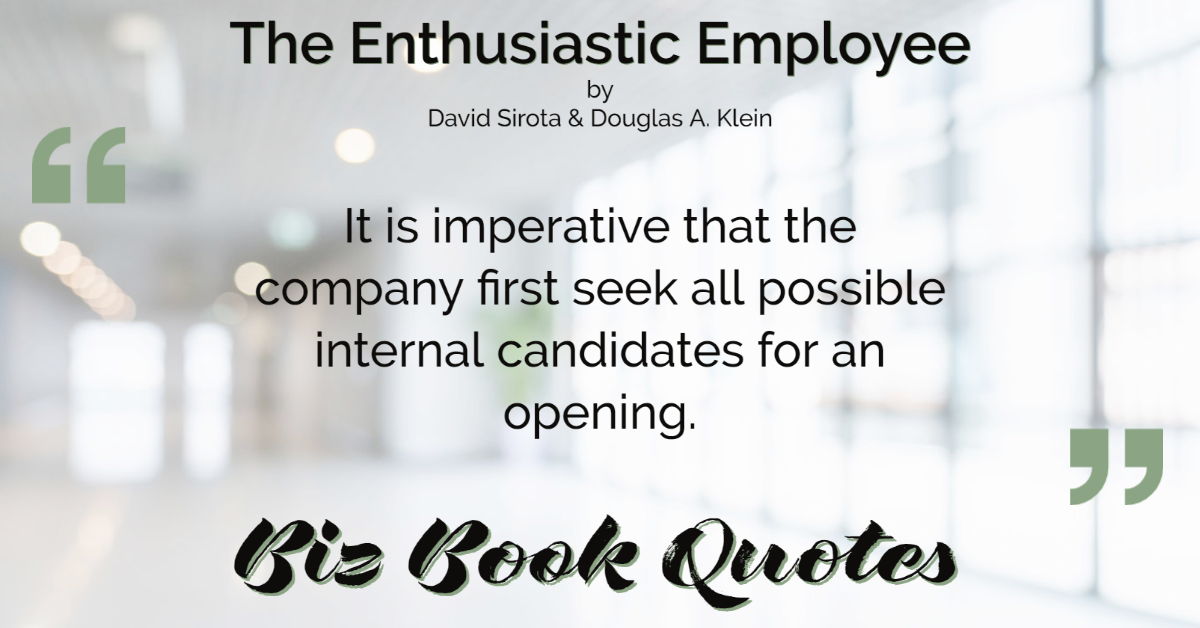
|
The Enthusiastic Employee:
It is imperative that the company first seek all possible internal candidates for an opening.
|
343 |











